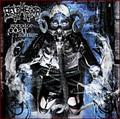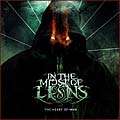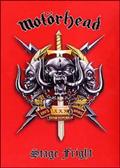DONNYBROOK (usa) - Lions In This Game (2005)

Label : Alveran Records / Nocturne
Sortie du Scud : 25 juillet 2005
Pays : Etats-Unis
Genre : Hardcore
Type : Album
Playtime : 12 Titres - 26 Mins
Originaires de la ville des Anges, DONNYBROOK est un jeune groupe californien formé en 2003. Auteurs à ce jour d’un EP de quatre titres et d’un split CD en compagnie de PIECE BY PIECE, ce quintette mené à la baguette par les frères Stewart au chant et à la guitare et les frères Banura chargés de la section rythmique, DONNYBROOK exerce un Hardcore élémentaire et sans fioritures, lorgnant volontiers sur le bon vieux Hardcore old-school made in New-York.
Alors que le dernier album des Parrains du Hardcore New-Yorkais MADBALL vient de paraître chez les disquaires, peu sont les groupes de Hardcore actuels souffrant la comparaison. Ici, c’est DONNYBROOK qui s’y frotte.
Apparemment, ceux-là ont bien retenu la leçon puisqu’ils nous administrent douze compositions d’Hardcore pur jus. Avouons-le d’emblée, la qualité est belle et bien présente.
Malgré leur aspect basique, les compositions ont le mérite d’être surtout efficaces et énergiques, comme le démontrent des titres tels que « Purify », « Get Your Mind Right », ou bien « House Of Rage ». La voix et le chant de Dre Stewart s’apparente en plus à celle de Zach De La Rocha (ex-RAGE AGAINST THE MACHINE), ce qui confère un petit plus de révolte et d’insoumission aux lignes vocales.
En revanche, ils affichent parfois ici et là quelques restes de naiveté comme ces immuables backing vocals en cœur au niveau du refrain qui font vraiment cliché !
La toujours bonne qualité de production au sein des groupes faisant partie du label Alveran Records est là pour rehausser le niveau d’un disque plutôt mature et bien réalisée.
Un premier album qui devrait sans doute faire parler de lui !
Ajouté : Mercredi 03 Août 2005
Chroniqueur : Loki
Score :   
Lien en relation: Donnybrook Website
Hits: 15333
|














